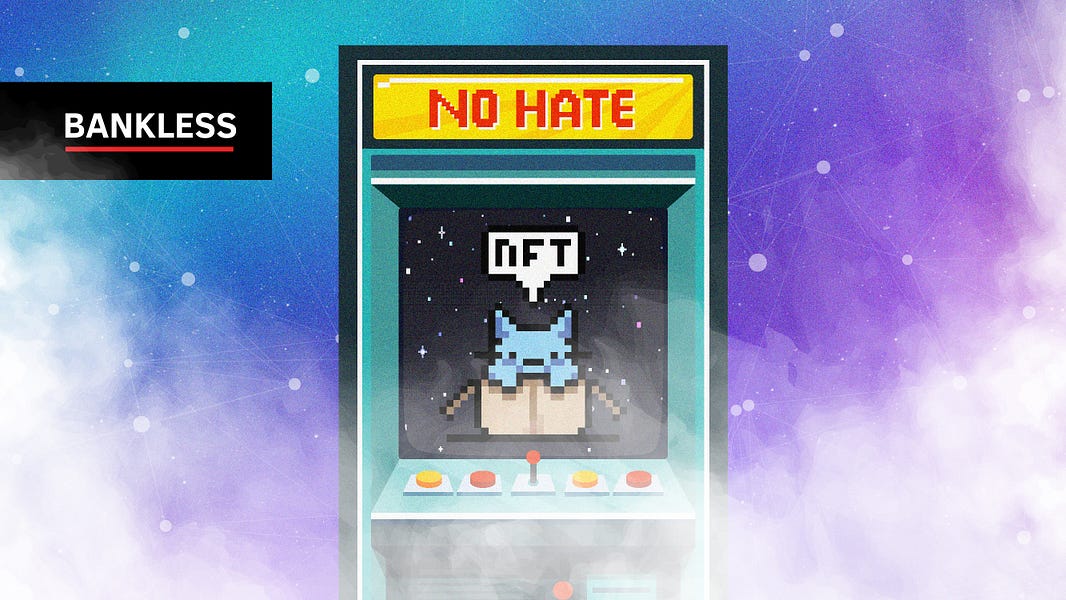Dear Bankless Nation,
Every action has an equal and opposite reaction.
Last year, NFTs bloomed.
They became the poster child for what’s possible with crypto—digitally verifiable private ownership. Fortunes were made. Hype was generated.
In turn, we saw a visceral reaction against NFTs, most notably from the gaming ecosystem in videos like this.
I think this resentment is misplaced.
NFTs aren’t here to exploit gamers. They’re here to give gamers the freedom of choice.
Donovan gives us his in-depth reasoning on why gamers shouldn’t hate NFTs.
- RSA
P.S. Listen to this week’s podcast with Ryan Wyatt, the former Head of Gaming at YouTube!
It’s been decided that gamers hate NFTs.
When Ubisoft announced plans in November to introduce NFTs as cosmetic wearables into its classic Tom Clancy series, its Youtube video was met with a swarm of dislikes that saw it promptly delisted in a bid to salvage corporate embarrassment. A quick look at Rarible today shows that Ubisoft’s NFT collection has made a measly 35 sales as of February 2022, further affirming its player base’s low interest in the NFT collection.
Nonetheless, kudos to Ubisoft. Other studios like Sega and GSC Game World quickly buckled and shelved their NFT plans under fan backlash.
Fans think NFTs are just another way for gaming studios to make a quick buck. If true, developers are potentially leaving dollar bills on the sidewalk. A 2022 Game Developers Conference report surveying over 2,700 game developers finds that “a majority of game industry professionals said their companies were not interested at all in cryptocurrency (72%) or NFTs (70%)”.

Why do gamers hate NFTs?
The key objection seems to stem from monetization concerns, revolving around the play-to-earn model that was popularized by Axie Infinity in mid-2021.
Unlike traditional games where the in-game money supply and items are subject to the control of developers, blockchain games allow players to create, fully own, and exchange their assets freely between the worlds of crypto and fiat on their own terms. This transition from a socialist “you trade what we say you can trade” to a capitalist “everything is freely tradable” gaming economy opens an opportunity for players to reap a profit for their invested time and effort - hence “play-to-earn”.
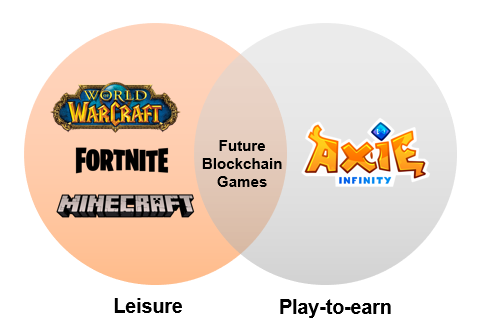
Seen in this context, it’s understandable why gamers are skeptical of NFTs. Games are a sweet escape from the monotony and stresses of life. Market forces disrupt this meticulously designed simulation, blurring the lines that separate gamers from their fantasy worlds.
All work and no play makes Jack a dull boy, and Jack demands his playtime.
There is perhaps also an unspoken sense of fairness in gaming that gamers feel are being violated. Games let players craft their destinies from a palette of roleplaying possibilities – under the condition that we all start from an equal footing. But, a blockchain economy where players can purchase resources with fiat (like an Axie player acquires SLP) may permit them to progress in-game without climbing the traditional merit-based ladder.
This sentimental premise of merit-based progress is what drives many veteran gamers’ disdain for pay-to-win microtransaction-type purchases like loot boxes that are rampant on casual “freemium” mobile games. They tolerate it if the purchases offer aesthetic upgrades but the discontent grows if players can buy tangible gameplay advantages.
In short, blockchain gaming offers the proverbial Matrix red pill. But hardcore gamers are perfectly happy in their simulation and no, they would not like to see how deep the rabbit hole goes.
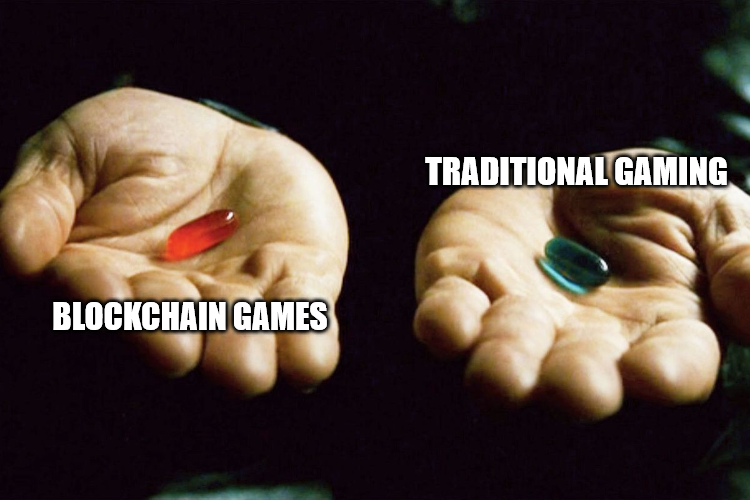
Blockchains ruin gaming - for whom?
Whenever the media reports on big groups of angry people, our brains have a tendency to simplify them into one homogeneous group voicing a unified set of preferences. Do the tedious work of wading through that noise, however, and a more complex reality almost always emerges.
Gamers protest that the added in-game commercialization from blockchains into games will alter the art form for the worse: but worse for whom?
The loudest hostility towards blockchain games tends to come from “hardcore” non-casual gamers populating Steam marketplaces and the hallowed halls of Reddit (notice how they cheered when Valve banned blockchain games).
Yet, it’s not clear that this vocal fanbase is representative of the broader 3.24 billion players strong gaming market with vastly different consumer preferences.
Data from a Newzoo report shows that casual mobile gamers (55%) dwarf both PC and console gamers put together (45%).
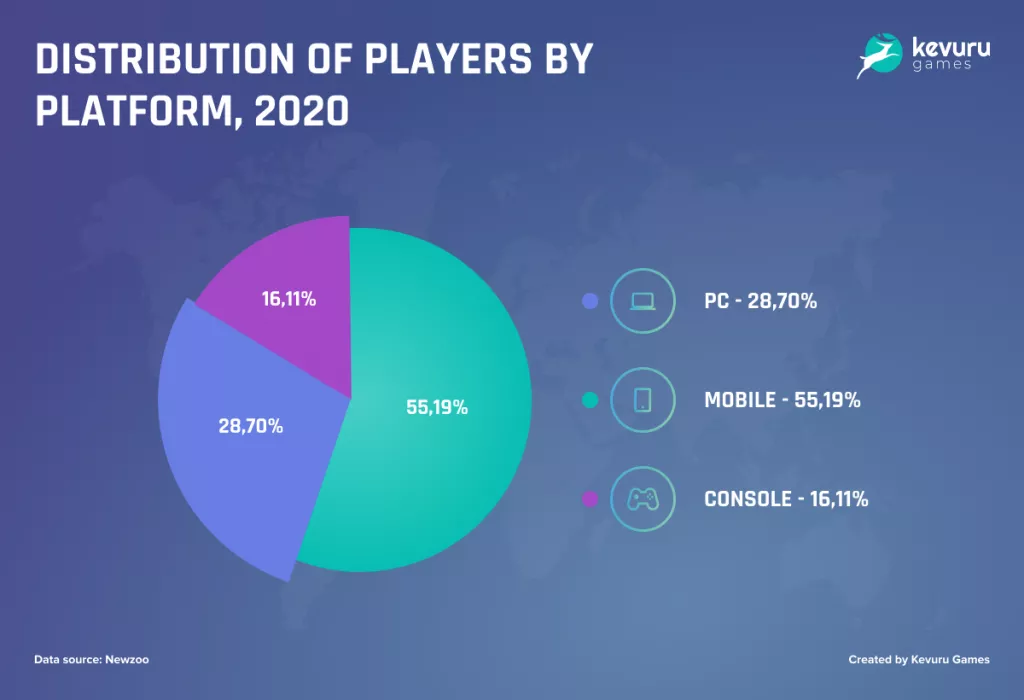
Revenue figures tell the same tale. Mobile gaming revenues make up more than half (52%) of the industry, as opposed to 20% on PC games and 28% from console gaming.
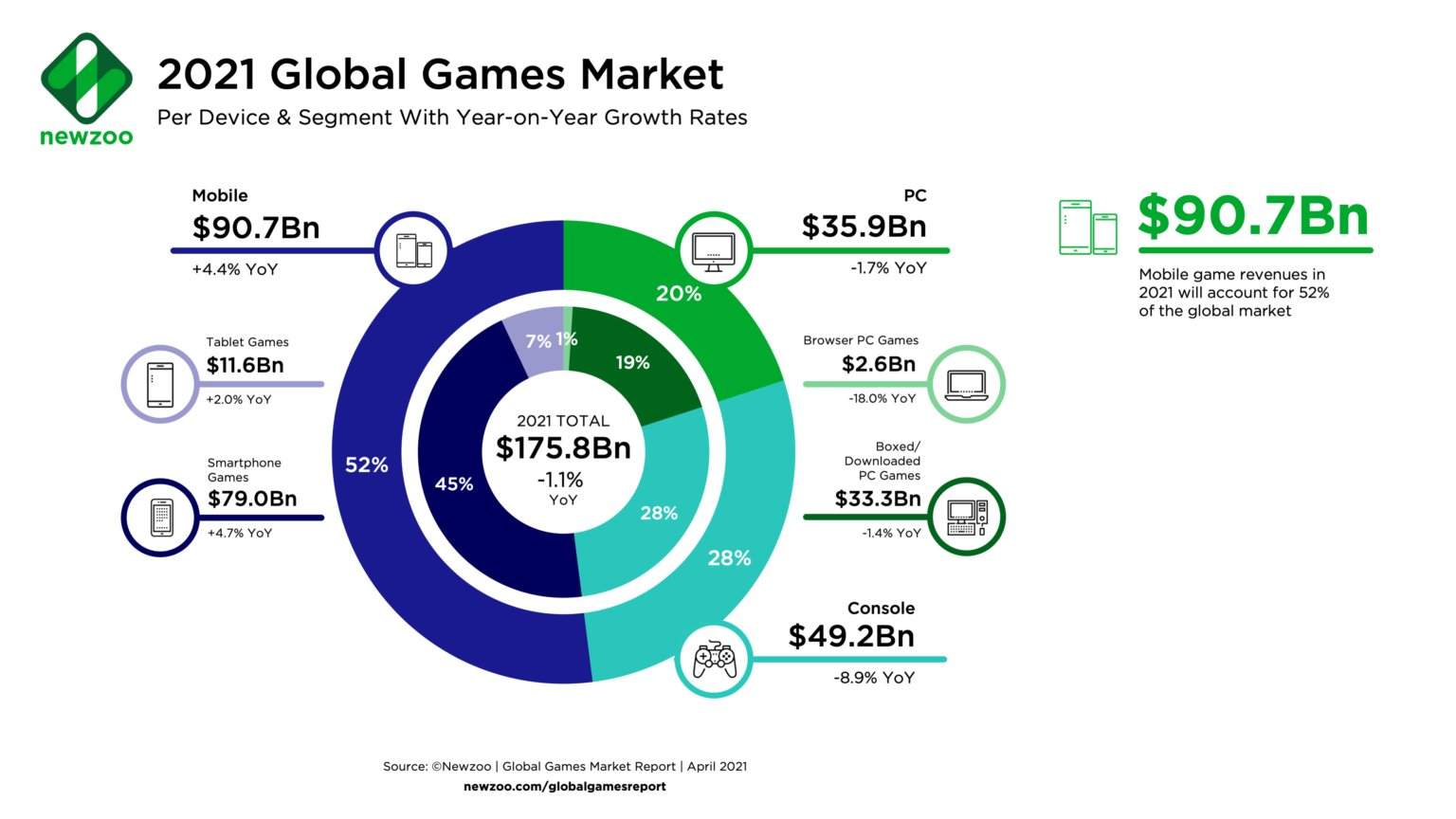
But of course, microtransactions populate both casual and non-casual gaming. Different reports find that the revenue share generated from microtransactions alone ranged from the lower end of $34.5 billion in 2021 to the higher estimate of $92.6 billion in 2020.
The market has spoken: casual mobile gaming reigns. If commercialization within games is bad, a significant number of gamers are quite OK with that.
Yes, it’s a shocker, I know. That market of uncultured philistines, who wouldn’t know a good game from a bad, who scarcely has any appreciation for the art of video gaming, who dares indulge in “pay-to-win” microtransactions on Clash of Clans, and whom we are all very concerned now will direct their monies towards NFT gaming.
Taken together, the data tells us that even if some gamers think in-game monetization is bad, the larger majority of the gaming market disagrees.
Non-casual gamers complaining about blockchain games introducing unwanted financialization state a subjective preference that reflects a minority slice of the gaming market. They’re well-entitled to their preferences, of course. The beauty of free markets is that it allows a diversity of values to coexist simultaneously. But suffice to say, they don’t speak for the billions of casual gamers who are perfectly happy to shell out a few bucks for their games and will likely welcome play-to-earn opportunities.
Is this speculation? On-chain data from a 2021 Dappradar report found that a significant 1.4-2.7 million unique active wallets connect to blockchain games daily. In Q3 2021 alone, gaming NFTs generated 22% ($2.32 billion) of all NFT sales. Another estimate finds that the blockchain gaming market in 2021 ballooned to $1.5 billion in sales (approximate three-quarters comes from Axie Infinity).
The play-to-earn model is nascent, but it is already passing the market test.
Play-to-earn is economic freedom
Hardcore gamers think of gaming as a commerce-free meritocracy where the “best” players come out on top fairly, but this is a fallacy. All games have pockets of play-to-earn elements, only we don’t think of them in monetary terms.
The best players spend the most scarce resource - time - to hone their skills, grind the best gear (Diablo anybody?), and clout for their toons. In crypto, we think of whales as those with deep money pockets. In gaming, the “whales” are those with the most time on their hands. The rest of us with less time to commit to the game will simply not be highly-ranked on leaderboards, be well-geared enough to be invited to raids, or be held in high esteem by the community.
Web3 extends what Web2 does for gaming. Web2 allowed (some) gamers to commercialize their time in games by Twitch live streaming, and earn prize money from tournaments and product sponsorships thanks to social media. Web3 furthers that egalitarian logic by enabling that for everyone. Does anyone remember video gaming before Web2? Bragging about my hard-earned Runescape leaderboard scores on an obscure internet board was just about all the “earnings” I got.
Even veteran gamers who are worried about play-to-earn vandalizing their virtual worlds will agree that our favorite games can involve too much tedious labor and grind. We want to get to the high levels so we get invited to the dragon-slaying raids, but can we avoid having to repetitively kill a million boars in the process like Cartman and friends in South Park?
Play-to-earn will probably not completely overhaul the “grinding” process, but it can at least redesign games so players get rewarded for it. And these rewards aren’t trivial. A 2008 research paper estimates that EverQuest 2 players are “losing” $24,852 per year in opportunity costs, based on their average playing hours (25-29hours a week) and earning power of the societies they live in.
The non-fungible-tokenization of third-party skins, maps, and patches also opens a lucrative door for the thousands of Skyrim, Half-Life, and Minecraft gaming modders and creators of user-generated content to distribute their creations for free while getting paid for it by their “100 true fans”.
Blockchain games promise to unlock all of these earning potentials, and more. Critics of play-to-earn worry that the monetization model threatens to strip the ‘fun’ out of games but these arguments greatly miss the point. Play-to-earn empowers players with a welfare-enhancing alternative than the options currently available to them. That is much better than doing nothing.
Play-to-earn is not a Ponzi
Because some blockchain games like Axie Infinity require players to make an upfront investment of $100-300, critics have hastily jumped to “Ponzinomics” conclusions.
First, not all games are built with a high entry barrier. Plenty of popular free-to-play blockchain games like Splinterlands and Gods Unchained already exist. This is true too for upcoming big-budget AAA titles. Aurory, an upcoming roleplaying game on Solana, allows players to play for free and earn NFTs (called Nefty/Nefties) and in-game currency (AURY) in the process. Illuvium, another much-hyped AAA title on Ethereum plans to release its game as free-to-play, with options for players to pay and access gated content like is currently done in many freemium games. So please don’t fret that little William will be spending summer break logged into a “virtual casino”.
Second, insofar as paid entry barriers remain, GameFi DAOs like Yield Guild Games or Merit Circle have emerged to democratize entry for millions of players to join a profit-sharing model. Some critics think this is exploitative, but we don’t think the same when professional eSports teams conduct the same hire-and-training for the cream of the crop.
Finally, as more blockchain games enter the fray over time, economic theory tells us that the higher supply will cause Axie’s pay-to-play model to fall out of favor. Games that cannot compete on play-to-earn profit returns to players will begin appealing to players through other traditional gameplay elements like immersion and creativity (gamers rejoice!). Striking this hybrid balance between leisure and play-to-earn will be the equilibrium of blockchain gaming.
Blockchains further enable spontaneous gaming worlds
The biggest reason to be excited about blockchain games is the kinds of emergent effects that commercial culture and market mechanisms will inject into games. Emergent effects refer to the spontaneous orders and outcomes that develop from decentralized human action, or in the words of the Scottish philosopher Adam Ferguson: “the result of human action, but not the execution of any human design.”

Many such spontaneous orders already exist within traditionally “socialist” gaming economies. The best examples are documented by the economic historian Steve Davies in the notorious sandbox MMORPG EVE Online, where whole geopolitical orders, large player factions with 30,000+ members, and complex economic systems developed without central direction.
In MMORPGs like EverQuest, World of Warcraft, and LOTR Online, the popular Dragon Kill Points (DKP) legal property rights system emerged spontaneously as a way for players to fairly allocate rare loot from group raids.
Even within relatively simple 2-D games such as Pac-Man or Super Mario World saw gamers craft their own unique experiences by creating ways to compete with each other through high scores. The designers of simulator games like Minecraft set loose boundaries for gameplay but they could not have imagined that journalists would leverage it to host a digital library of more than 200 censored books for activists in authoritarian societies.
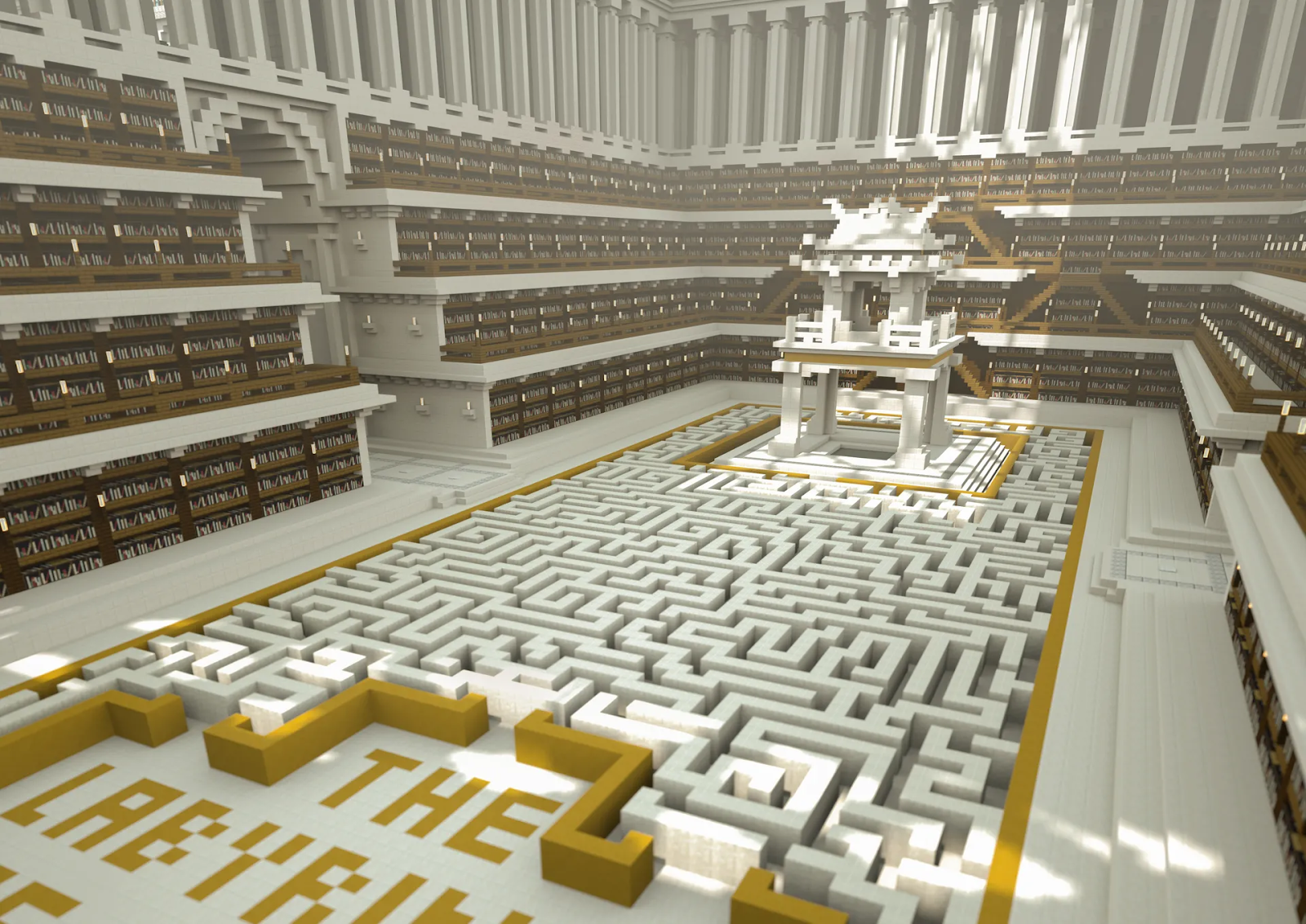
If all this spontaneity developed without blockchain immutability, imagine how gaming will change when players can create, own and exchange freely based on actual market incentives?
Just as NFTs enable social clubs, immutable property ownership in games can incentivize players to knit stronger communitarian bonds in guilds/clans to drive higher player adoption and retention. Third-party game modders and creators of user-generated content can finally reap a share of value from the gaming economies they help improve and have more incentive to create better quality mods.
Even if in-game items lack direct interoperability between virtual worlds, players who choose to exit a game can retain some capital from invested time by trading their NFTs into a common cryptocurrency. This is analogous to how paper money historically freed capital mobility from a system of barter trade. The economic implications would be massive, to say the least. Like real-world economies, this would intertwine different gaming economies in novel ways that even the best developers could not anticipate.
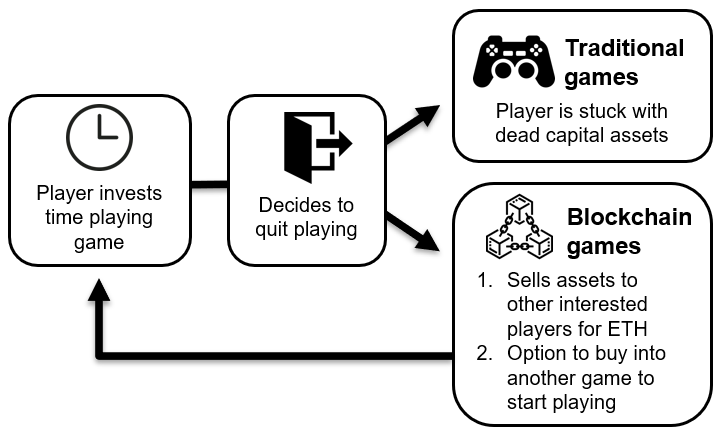
Far from impoverishing gaming culture, blockchains have the potential to socially and economically enrich the world of video gaming by opening up a world of player interaction possibilities.
Conclusion
When Blizzard bans gold farmers in World of Warcraft, they do so because the economic value is leaking from their walled gardens and hurting their profit margins. For many years, Microsoft enforced intellectual property laws that allowed Minecraft users to modify and create user-generated content, but prohibited them from selling officially licensed code for profit, effectively maintaining a gray economy of passionate fans that lived to serve them.
Gamers are rightly worried about how blockchains will change their treasured worlds. But their passion for games coupled with a gross misunderstanding of blockchains has led them to end up defending the one true profit-maximizing dictatorship: Gaming publishers. Blockchains provide a way to legitimize every facet of the gaming economy and include the 99% in the process of wealth creation. Not just developers, not just Pewdiepie, but everyone. The change will come with risk, but risk is also the prerequisite for progress.
